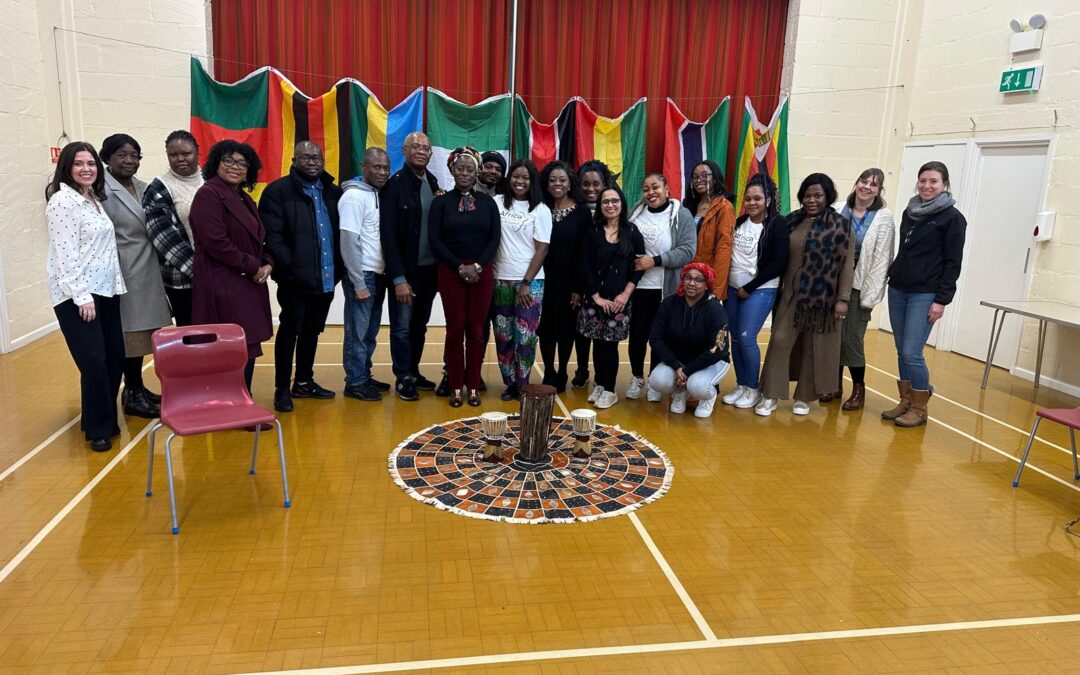The African Community in Surrey and Sussex (ACISS) convened a crucial community forum on January 31, 2025, aimed at addressing mental health challenges and promoting social integration for Africans living in the UK. Held at 5 Honeycrock Lane, Salfords, Redhill, the event, titled “Life in the United Kingdom: Information is Power,” brought together mental health professionals, community leaders, and advocacy groups to discuss strategies for improving support services for marginalized communities.
Kasey Senior, the Practice Standards & Principal Social Worker and Quality & Performance Service Manager at Surrey County Council, delivering a keynote address, urged professionals to adopt a more inclusive approach, ensuring that policies and practices reflect the diverse needs of the communities they serve. She emphasised the importance of culturally competent social work in supporting African families in the UK. Senior stressed the need for tailored interventions that acknowledge cultural nuances, particularly in child welfare, mental health, and family support services.
Following her address, Mercy Osei-Poku, National Community Engagement Lead at Immigration Enforcement (NCEL, NCET), discussed the intersection of immigration policies and mental health, shedding light on the emotional toll that legal uncertainties place on African immigrants. She addressed common fears and encouraged people to speak out against abuse and slavery treatment. Osei-Poku emphasized the need for stronger community engagement to bridge the trust gap between immigrants and government agencies, advocating for collaboration between local authorities and African community organizations to create safer, more supportive environments.
Ruby Carmichael, a representative from Minds UK, acknowledged the disparities in mental health service provision for Africans in West Sussex. She pointed out that stigma and distrust were key barriers preventing many from seeking help. “We recognize that we’re not reaching the African community as effectively as we should,” she admitted, urging attendees to share insights on making mental health resources more accessible and inclusive.
To strengthen engagement, Carmichael introduced an ongoing survey designed to collect feedback from the African community on their mental health needs. She emphasized that understanding cultural perceptions of mental health was vital in designing services that resonate with the community. “We need to listen and adapt to ensure that everyone feels supported,” she stated.
The event also explored alternative approaches to mental well-being. Jo Woodhams, Director of Air-Time Charity, highlighted the therapeutic benefits of nature-based activities. She presented evidence on how gardening, foraging, and outdoor cooking could improve mental health. “Nature must be a space where everyone feels welcome, yet conservation remains one of the least diverse sectors,” she noted, introducing Air-Time Charity’s Project Eden, which encourages minority communities to engage in environmental initiatives.
A panel discussion addressed the role of storytelling in advocacy and mental health awareness. A guest speaker stressed the need for Africans to share their experiences to break the silence around mental health issues. “When we tell our stories, we empower others and challenge harmful stigmas,” she remarked, calling on attendees to use their voices to demand better access to culturally competent services.
Language and cultural differences were identified as additional barriers preventing Africans from accessing critical services. One speaker explained that service providers often fail to communicate information in ways that align with African cultural contexts. “It’s not just about translation; it’s about breaking down complex information so that it’s understood and trusted,” she said, urging institutions to engage more with African communities in co-developing solutions.
Real-life testimonies illustrated the systemic obstacles faced by African families. One attendee shared her experience of advocating for her child’s educational needs in a system that initially failed to accommodate them. Her story was met with encouragement from facilitators who stressed the importance of persistence. “Your child is not the only one in that setting. Advocating today means paving the way for others,” a speaker reassured.
The forum also stressed the intersection between immigration policies and mental health. Mercy Osei-Poku from Immigration Enforcement discussed the emotional strain many African immigrants experience when navigating the UK’s complex immigration system. She called for stronger community networks to provide guidance and mental health support for those struggling with immigration-related stress.
As the event concluded, Leadership and Empowerment Coach Elizabeth Ozua emphasized the importance of sustained collaboration between communities and institutions. “Change won’t happen overnight, but continuous engagement will bring progress,” she stated, encouraging attendees to participate in upcoming initiatives aimed at improving service provision.
The event was spearheaded by Bolaji Odunuga, the founder and convener of the African Community in Surrey and Sussex (ACISS), whose dedication to community development and advocacy has been instrumental in creating platforms for African immigrants to access vital resources.
With the event, ACISS reaffirmed its commitment to advocating for better mental health policies and fostering stronger community support networks. The event served as a vital platform for discussions on how African communities in the UK can navigate mental health challenges, break down stigmas, and push for more inclusive policies that address their unique needs.

